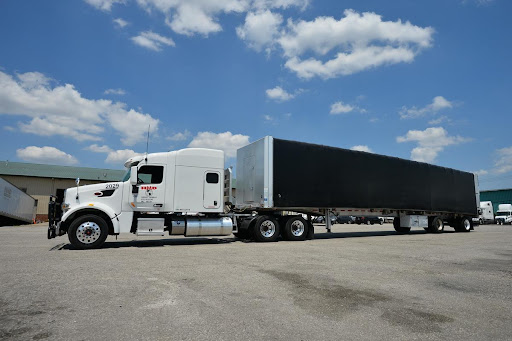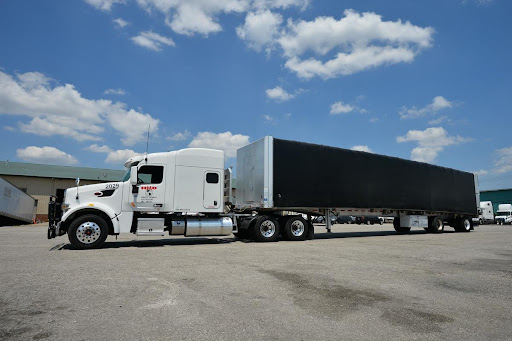The trucking industry is a vital backbone of the economy, transporting goods from coast to coast and ensuring that essential products reach their destinations. Within this industry, truck drivers have the choice of OTR vs regional trucking careers, each with its own set of advantages and disadvantages. Deciding between these two options is a crucial step in a truck driver’s career, as it directly affects their lifestyle, earnings, and overall job satisfaction. In this article, HMD will explore the key distinctions and weigh the pros and cons of long-haul trucking versus regional trucking, offering valuable insights to help drivers make informed choices.
Table of Contents
Advantages of Long-Haul Trucking:

Long-haul trucking, also known as over-the-road (OTR) trucking, entails driving over extended distances, often across state lines or even coast-to-coast. This career choice offers several advantages that can be appealing to many truck drivers.
Higher Earnings Potential:
One of the most compelling advantages of long-haul trucking is the potential for higher earnings. Long-haul drivers typically enjoy higher per-mile pay rates compared to their regional counterparts. This means that for each mile traveled, long-haul drivers have the opportunity to earn more. Additionally, long-haul routes often involve covering a greater number of miles, which contributes to higher overall earnings. For those who are motivated by financial incentives and the opportunity to maximize their income, long-haul trucking can be an attractive choice. It allows drivers to reap the financial rewards of their dedication and time spent on the road.
Diverse Routes and Experiences:
Long-haul trucking offers an exciting variety of routes and experiences. Drivers who choose long-haul routes have the chance to explore different parts of the country, witnessing diverse landscapes, climates, and cultures. This variety can be especially appealing to those who have a sense of adventure and a desire to see more of the world. Whether it’s driving through the mountainous terrain of the Rockies, the rolling plains of the Midwest, or the bustling urban centers of major cities, long-haul drivers enjoy a rich tapestry of experiences. The changing scenery and the challenges that come with it keep the job engaging and often prevent monotony from setting in.
Flexible Schedule:
Flexibility in scheduling is another advantage that long-haul trucking offers. Long-haul drivers often have more control over their schedules compared to their regional counterparts. While adhering to industry regulations and safety guidelines, long-haul drivers can plan their routes and rest stops to a greater extent. This flexibility allows them to adapt to changing road conditions and optimize their routes to meet their needs. It also means they have more discretion when it comes to deciding when and where to take breaks, which can be especially valuable for those who prefer to customize their workdays.
Disadvantages of Long-Haul Trucking:
While long-haul trucking comes with several advantages, it’s essential to also consider the potential disadvantages and challenges that drivers may encounter on the road.
Extended Time Away from Home:
One of the most significant drawbacks of long-haul trucking is the extended time spent away from home. Long-haul drivers often face weeks or even months on the road, which can take a toll on their personal lives and relationships. The extended absences can lead to feelings of isolation and homesickness, making it a less suitable option for those who prioritize being close to their families and maintaining a strong connection with loved ones. Drivers who choose long-haul trucking must be prepared for a lifestyle that involves long stretches of time away from home and the comforts of family life.
Physical and Mental Demands:
The physical and mental demands of long-haul trucking should not be underestimated. Long hours on the road, varying weather conditions, and extended periods of solitude can all contribute to physical and mental fatigue. Maintaining good health, managing stress, and coping with the challenges of extended trips are essential aspects of this profession. The sedentary nature of long-haul trucking can lead to health issues if drivers do not take care of their well-being, making it vital for drivers to adopt healthy habits and prioritize self-care to mitigate these demands.
Regulatory Compliance:
Long-haul trucking is subject to strict regulatory requirements, particularly in terms of hours of service (HOS). Drivers must rigorously adhere to these regulations to ensure safety on the road. Non-compliance with HOS rules can lead to penalties, fines, and potential loss of employment. Staying compliant requires a disciplined approach to scheduling and meticulous record-keeping. Drivers must also stay informed about any changes in regulations, which can vary by region, further adding to the complexity of the job.
Advantages of Regional Trucking:



Regional trucking, also known as short-haul trucking, involves driving shorter distances within a specific geographic region. This option has its own set of advantages, which may make it an appealing choice for many truck drivers.
Predictable Schedule:
One of the most significant advantages of regional trucking is the predictability of schedules. Regional drivers often have fixed routes and regular schedules, allowing them to plan their work and personal lives with greater certainty. This predictability enables drivers to establish a routine and maintain a work-life balance that aligns with their preferences. For those who prioritize stable and predictable schedules, regional trucking can be a highly attractive option.
More Time at Home:
Regional trucking offers the advantage of spending more time at home and with family. Compared to long-haul drivers, regional drivers typically have shorter trips, allowing them to return home more frequently. This results in reduced time away from family and loved ones, which can be especially important for those who cherish their connections at home. The ability to be present for family events, special occasions, and daily life is a key benefit for many regional drivers.
Shorter Hauls:
In regional trucking, routes are often shorter, involving less time on the road for each trip. Shorter hauls mean less time spent driving, which can translate to reduced physical and mental fatigue. Regional drivers may have the opportunity to complete their routes in a single day, allowing them to return home or to a designated rest location regularly. This can contribute to a sense of well-being and a lower risk of burnout compared to long-haul drivers.
Disadvantages of Regional Trucking:
While regional trucking offers several advantages, it also comes with its own set of disadvantages and challenges that drivers need to consider.
Lower Earnings Potential:
One of the primary disadvantages of regional trucking is the potential for lower earnings when compared to long-haul driving. Regional drivers often receive lower per-mile pay rates, and the number of miles covered during each trip may be fewer. As a result, the overall earnings for regional drivers may be less compared to their long-haul counterparts. Drivers who prioritize maximizing their income may find regional trucking less financially rewarding.
Limited Geographic Variety:
Regional trucking typically involves covering the same geographic region repeatedly. While this can provide familiarity and routine, it can also lead to a lack of diversity in routes. Regional drivers may find themselves traveling the same highways and seeing the same sights regularly, which could potentially lead to feelings of monotony. Those who seek variety in their work and enjoy exploring different parts of the country may find regional trucking less satisfying in this regard.
Traffic and Urban Challenges:
Regional routes often involve navigating through urban areas and dealing with traffic congestion. This can present its own set of challenges, including potential delays, increased stress, and the need for exceptional urban driving skills. Regional drivers may encounter busy city streets, complex traffic patterns, and the demands of making deliveries in metropolitan areas. This aspect of regional trucking requires patience and adaptability to handle urban driving effectively.
Last Words:
The choice between long-haul and regional trucking is a significant decision that can profoundly impact a truck driver’s career, lifestyle, and job satisfaction. Both options offer their own unique set of advantages and disadvantages, catering to different preferences and priorities.
Long-haul trucking appeals to those who seek higher earnings potential, diverse routes, and flexibility in their schedules. It offers a chance to explore different parts of the country, earn higher per-mile pay, and enjoy a flexible work-life balance. However, long-haul trucking comes with the challenges of extended time away from home, physical and mental demands, and the need for strict regulatory compliance.
On the other hand, regional trucking provides a predictable schedule, more time at home, and shorter hauls, which can be ideal for drivers who value stability and maintaining strong connections with family. While regional trucking offers the benefits of shorter routes and reduced physical fatigue, it may have lower earning potential, limited geographic variety, and the need to navigate urban challenges.
Ultimately, the decision between long-haul and regional trucking should be made based on a driver’s individual preferences, career goals, and personal circumstances. It’s essential for drivers to weigh the pros and cons carefully and consider their priorities when making this choice.




























